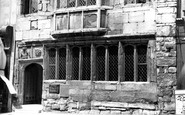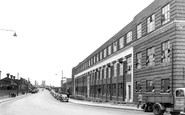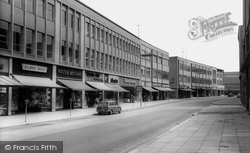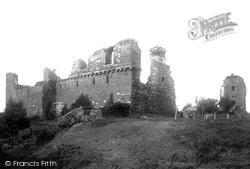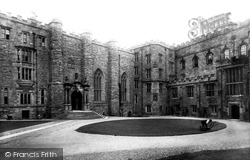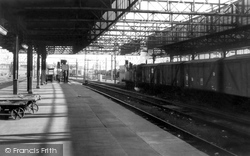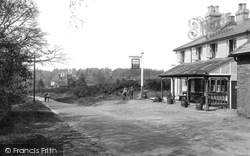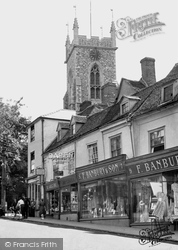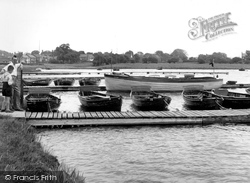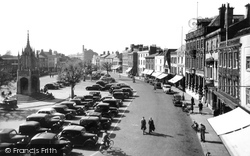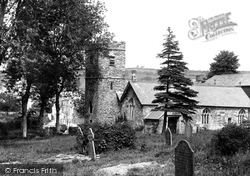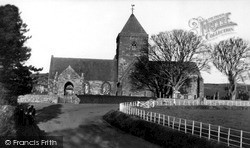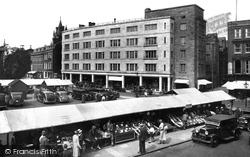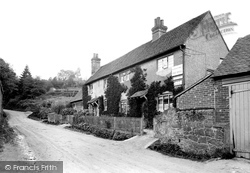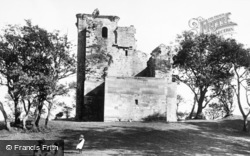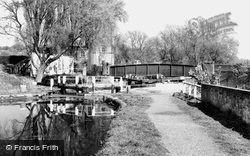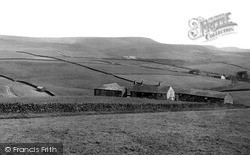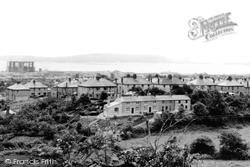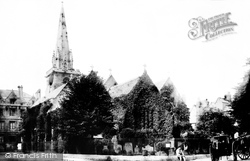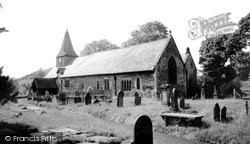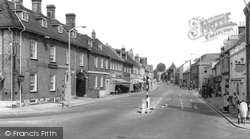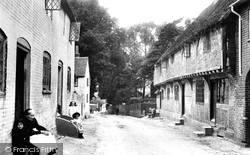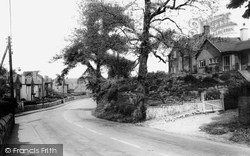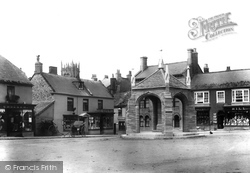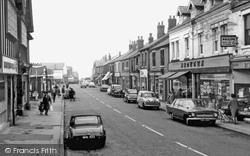Places
8 places found.
Those places high-lighted have photos. All locations may have maps, books and memories.
Photos
80 photos found. Showing results 181 to 80.
Maps
49 maps found.
Books
Sorry, no books were found that related to your search.
Memories
1,421 memories found. Showing results 91 to 100.
My Memories Of Resolven.
The personal views of Resolven expressed in these pages reflect my own fond memories of Resolven, the Vale of Neath and its people. In 1953 I returned to the valley as a teenager, little did I know it was to become my home. I ...Read more
A memory of Resolven by
Living Aboard Boats
I moved aboard a small 2 1/2 ton yacht named Gulldreen in Dixon Kerlys yard along the Downs Maldon in the 1960's. This was while I was serving my apprenticeship at Hoffmanns in Chelmsford. I then bought the ex RNSA yacht 'Samuel ...Read more
A memory of Maldon by
Before The Hippies...
During the '70's I lived in nearby Shepton Mallet. After I'd left school many of my mates & myself bought motorbikes, Glastonbury was often a destination - my first bike was a very unreliable Czech made CZ175. Luckily, ...Read more
A memory of Glastonbury by
Weekends At Chapel Row
I didn't live in Bucklebury but was born in Cold Ash where I lived prior to moving to Thatcham. Unfortunately my father died as the result of a motor cycle accident when I was eight years old, and social care being what it ...Read more
A memory of Bucklebury by
Fergusson Family
My forbears Robert Fergusson and Margaret nee Scott left Ceanghline around 1806 and moved to a farm near Dingwall. Family hearsay has it that they followed a charismatic Moulin minister Alexander Stewart when he went to the Black Isle. Thereafter the family were named Ferguson with one s!
A memory of Ceanghline by
Beanz Dreamz...
Our family moved to Friars Road in the summer of 66, from a damp house in Boothen Green, which looked over toward the Michelin Factory. I was 5 years old. My father Graham was a former art student at Burslem College of Art under the ...Read more
A memory of Abbey Hulton by
Grocers? 2166 Coventry Road
Hi there. This isn't so much a memory of my own. More that I'm hoping to jog someone else's memory.... I have a unique little vehicle (Hillman Imp pick-up) and the logbook shows it was owned by a Mr R Adams of 2166 ...Read more
A memory of Sheldon by
Church Path, Mitcham And The People That Lived There
I was born in Collierswood Maternity Home, a very short time before it was bombed during the Second World War. The year was 1944. My family being homeless were housed in requisitioned properties in ...Read more
A memory of Mitcham in 1944 by
Greenwich In The 1940s And 1950s
I was born, during the Battle of Britain, at 8, Roan Street. Our back yard bordered St Alfege's churchyard. The house is not there any more because it had to be pulled down after the war. We had several 'near-hits' ...Read more
A memory of Greenwich by
Hart Hill School 1954
I was born in 1949 and entered Hart Hill School in 1954. Those were the times when 5 year olds were taken to school by their Mums for about one week into the new term! There were so many kiddies in the surrounding area of ...Read more
A memory of Luton by
Captions
877 captions found. Showing results 217 to 240.
Broadmead runs between Union Street and Penn Street, and was a part of the regeneration of the city centre following the destruction of the Second World War.
Penrith Castle was built by William Strickland, later Bishop of Carlisle, who was given permission to build Penrith Castle in 1397, following the sacking of the town by raiding Scots in 1354.
The keep is 14th century, though it was rebuilt in 1840 to house students following the creation of Durham University in 1832. The castle was turned into a university college a few years later.
This was followed by the Liverpool-to-Crewe line, and then south to London's Euston.
But it still caters readily for thirsty walkers following the numerous paths which criss-cross this lovely stretch of countryside.
Much of the church dates from the 14th century, but the old west tower fell down and was rebuilt in 1850; further restoration followed.
Joseph Wade, a Hull timber merchant, had a strong influence on the development of a resort here following the arrival of the railway in 1864.
This particular view shows the curve of the street: this echoes the line of New Park Street and Monday Market Street, which follow the castle's banks and ditches.
The present structure dates from the early 15th century, and has a leper squint through which lepers could follow the service.
The church was targeted by the suffragettes during a campaign of violence following the government's refusal to grant votes for women.
With stalls creaking under the weight of locally grown produce, there is no hint of the rationing to come after the outbreak of war the following year.
A church, shops and a village club all followed.
It was to here that Mary Queen of Scots and Henry, Lord Darnley came following their marriage in July 1565. The castle was owned by Henry's father, the Earl of Lennox.
Following an amalgamation with several other connected waterways, the Grand Union was formed in 1929. A Thames Trader lorry is crossing the iron bridge.
There was once a proposal to link Buxton and Macclesfield by light railway, by a route following the road.
The house dates from the reign of Elizabeth I, but was largely rebuilt following a major fire which undermined the structure in 1886.
This general view shows typical houses of the time; the terrace in the foreground is followed by 1950s semis leading down to the waters of the inlet of Carmarthen Bay, with the Gower peninsular just visible
Following the Dissolution of the Monastries, it was acquired by the Crown before becoming part of Pembroke College. Its members worshipped here until the college built its own chapel in 1732.
Constructed by local workers, the church does not conform to standard architectural styles; the Welsh refused to follow the fashions of the age.
Its streets, North, South, East and West, follow the pattern laid down by the Romans.
It later reopened following major restoration
After the Norman Conquest, the lands belonging to those theyns who had either fought for Harold or were implicated in the Northern rebellions were confiscated and awarded to William's followers.
Hardy drew a very accurate picture of Beaminster, and it is possible to follow in his heroine's footsteps.
After the Norman Conquest, the lands belonging to those theyns who had either fought for Harold or were implicated in the Northern rebellions were confiscated and awarded to William's followers.
Places (8)
Photos (80)
Memories (1421)
Books (0)
Maps (49)

